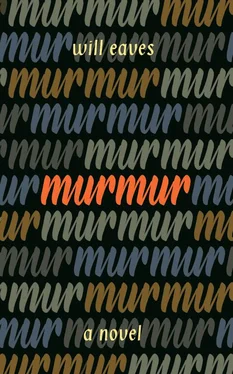The young man’s speech unnerves the Colonel, who balks. He is about to spoil a better person’s life. His guilt gives him that strange feeling of being watched. A tiny awareness clicking its postulates into shipshape, mid-sail, mid-web.
Stallbrook presses a thumb into his brow. “You may be luckier than you know,” he says. “It is not unequivocally a gift, that sort of brain.” His thumb presses harder. “If I were to hazard a guess, I’d say that Pryor’s life will be a disaster.” His eyebrows lift as if the thought had just occurred to him. “He is brilliant, of course, you’re right, but quite beyond the reach of all morality. Such persons never integrate.”
“Sir.”
“Do you understand?”
“Yes, sir.”
“Do you?” The friendliness has gone. “We do not need to be prophets to make a prophecy. Certain dismay awaits your friend . That boy already senses it. And he will lead you to a similar reward, however much you admire him.”
It would make perfect sense, Molyneaux thinks, if only it were not so mean. In front of him, Stallbrook is hung upon the moment like a moth. It doesn’t make a form of words, this quivering desire of upright men to draw a line.
He comes upon the revelation like a beggar in the road. One kind of person, the self-willed, cannot be helped. The beggar has beggared himself! The other must be made to give up who he really is, and in so doing choose a better fate.
Molyneaux hears an engine in the arch below. His parents’ car.
“I sometimes wonder if I’ve got a future, sir.”
Stallbrook sits motionless, a light-backed shape.
“I sometimes feel someone is watching me. I don’t know what you mean by a reward. Soon now, I’m going to be taken away.”
The boy leans forward into pain, a silent doubling. The person others see, the thing he is. The cough leaves mucus on his fist and little cauliflower clusters of red.
“You will be well looked after in the sanatorium.”
“I want to get out of this room.”
The master’s hand is palm down on his desk.
“You will be made quite comfortable.”
Christopher Molyneaux goes on, “I’ve often imagined these rooms—a master’s set, I mean. We live in dorms, downstairs. The funny thing, now that I’m here, is that it’s very similar—to how I saw it in my head. Just a bit off. Now, why is that? Who gave me the layout, or put it in my head? The panels, carpet, and the ottomans. It’s just as if another person read my mind and put them there. Though, come to think of it, I added the windows. A Gothic touch.”
“And ottomans,” Stallbrook reflects. “Never devoid of mystery.”
“Beg pardon, sir, but you half-sound as if you were expecting this. I feel—”
“You feel?”
“—something, an instinct, pressing me to—make a run for it. I want to get out of this room. I have to leave—or I will… I will have betrayed…”
Molyneaux stands, blue-thin and young, the twilit memory of an original, brow working, fingers white. Stallbrook’s expression stays unreadable.
“When you have taught a dozen generations of young minds, young man, you’ll learn to tolerate passion. The door is waiting for you over there.”
Turning to go, Molyneaux sees the panel and the door absurdly still and unnegotiable.
“I’ve changed my mind,” the poor boy says, slumping, a flush upon his cheeks.
I can’t , he tells imagination’s whisperer. I’m neither brilliant nor brave. I’m not unusual. That is my mother stepping off the Daimler’s running board with a light gasp at the high step. I will be ill, cautious, confused. I will be good .
He sees, around the Colonel’s head, the rays of an eclipse, a possibility, but one too wild and unlikely to last. It is a blanket and a fast embrace, a wordless instruction, a summerhouse, a daybed, and a rattan chair; perhaps, later, two flats in Battersea, a trust unnoticed by the world, two keys to open the same lock. A version of himself minus the attributes he has, the normal inclinations and sobriety, minus even his looks and build, but still himself. A friend transposed. The delicate image decays.
The Colonel nods. As usual, he thinks. The boy will soon get used to it, as every conscious figment must—the whispering in one’s ear. A man, a woman—no, a man. And every time you turn around to look, the body isn’t there.
He looks up to find Molyneaux in front of him, inches away, blocking the light. The young lad’s smell is lupine and aroused, his hands are slimed and streaked. Molyneaux smiles, a signal power arrived in his green eyes.
“I’ve changed my mind, again,” he says. “I want to get rid of this room. I cannot leave it, but I won’t let you, or anyone, take me away.”
The Colonel is about to speak, when Molyneaux stops him. He slides his wet fingers into the Colonel’s mouth. The Colonel jerks and gapes at this unspeakable affront, but what he can’t see is his own, and independently aroused, passion, which gulps disjointedly, a snake transfixed by predation. His eyes watering, he sucks and laps, his palate softening against the four fingers searching his throat. He wants the whole of the boy’s arm. The hand passes beyond the soft parts and the folds. Consumptive blood and drivel coat his chin.
He chokes and cries. The tears merge, like a sense of shame, with other bodies of water, and in the quad those gathered in its dam-burst flow—children, lovers, species, the dead—are lost to the torrent.
A creaking by the steps, as if a ship were complaining. Molyneaux’s parents just have time to shout, to say each other’s names, their voices carrying so far and then cut off, the noise of the ship breached astern.
The fountain in the quad becomes a waterspout. Whatever part of you it is that can’t be seen and bows to pressure will come back. And all the culverted personae of matter will rise to show you how mysterious the world of matter really is.
I charge the corridor and feel its wooden throat disjoint, tongue-and-groove parquet sundering; the mitered frames, detendonized panels—driftwood. Take me apart, take all my stones and bodily features away and I will still be here. I slide under the door and up the carpet, stair by stair.
*
The freak is at a loss. The answer is “a variable,” but that is also variable, a property that logically transforms at times into a constant, which it’s not. Because he is a freak who secretly likes poetry, he wants to say x isn’t merely Cartesian but just the sort of thing Lucretius would have liked, a point or particle tethered to change. He can’t. He’s silenced by the fluency of Molyneaux’s answers, and stunned by pain.
The changes in his body are too visible. A chemical postman sorting his blood finds sacks of hate mail for each tissue cell. The freak’s chest fills, his waist expands, his fine muscles detach. He voids himself, and in his muffled head he screams. Once at the pain, twice at the thought that this is happening.
Each spasm is an explosion along his spine. A kinesthetic squeal, white light as cutting tool. Molyneaux talks on brilliantly, and doesn’t seem to see or hear, or smell, his companion’s distress. Matron has made a sunflower head of the freak’s thigh, each puffy puncture mark a variation on a theme.
“ x marks the spot,” Molyneaux says. “ x is a poor man’s signature. x is a choice—select a box. x is a deletion. x multiplies—has powers. x is a half-lap joint…”
The fact is, no one takes much notice of the freak at all.
“… x was inserted to support the spire at Wells…”
“Now that is most astute,” Stallbrook concedes, opening a drawer. As Molyneaux continues, he removes some typescript from the drawer and runs his finger over it. The pages are too far away. One letter, surely, features more than periodically.
Читать дальше












